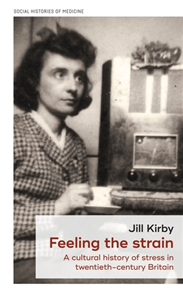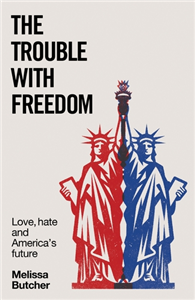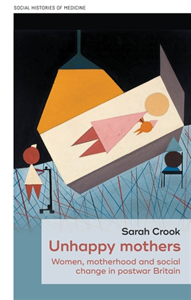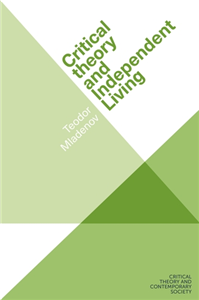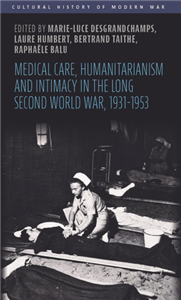Your Search Results
-
Helvetia Editrice
Edizioni Helvetia was born in 1972 from an idea of the poet and musician Gianni Spagnol who, after a six-year experience in Zurich as a printer at an important publishing complex, wanted to found in Venice - between Campo San Rocco and Campo San Tomà, not far from the Frari Church - a printing house/publishing house that would promote and stimulate the historical-literary production of the Venetian and Venetian area in detail. Then, with the 90s, the company was moved to the mainland. In 2006, with the acquisition by its granddaughter Daniela Spagnol, the name changed to Helvetia Editrice and the publications continued to explore themes linked to the territory, especially in the "Rosso Veneziano" series - which gathers historical curiosities, with a "popular" and mainly narrative slant - and the "VeneziaeVenetoVivo" series - more linked to pure historical non-fiction and documentation. Enriched with non-fiction and fiction, since 2019 Helvetia has been back in the game with two series that challenge the usual comfort zone by leaving the local territory: "Taccuini d'Autore" (Author's Notebooks), which collects books on the road, texts that travel and travel along the frontier of writing; and "Nuovi Territori" (New Territories), a line created to enhance new authors and unusual topics from experimental themes.
View Rights Portal
-
Promoted ContentThe ArtsSeptember 2024
The renewal of post-war Manchester
Planning, architecture and the state
by Richard Brook
A compelling account of the project to transform post-war Manchester, revealing the clash between utopian vision and compromised reality. Urban renewal in Britain was thrilling in its vision, yet partial and incomplete in its implementation. For the first time, this deep study of a renewal city reveals the complex networks of actors behind physical change and stagnation in post-war Britain. Using the nested scales of region, city and case-study sites, the book explores the relationships between Whitehall legislation, its interpretation by local government planning officers and the on-the-ground impact through urban architectural projects. Each chapter highlights the connections between policy goals, global narratives and the design and construction of cities. The Cold War, decolonialisation, rising consumerism and the oil crisis all feature in a richly illustrated account of architecture and planning in post-war Manchester.
-
Promoted Content
-
 Trusted Partner
Humanities & Social SciencesJuly 2021
Trusted Partner
Humanities & Social SciencesJuly 2021Post-everything
An intellectual history of post-concepts
by Herman Paul, Adriaan van Veldhuizen
Postmodern, postcolonial and post-truth are broadly used terms. But where do they come from? When and why did the habit of interpreting the world in post-terms emerge? And who exactly were the 'post boys' responsible for this? Post-everything examines why post-Christian, post-industrial and post-bourgeois were terms that resonated, not only among academics, but also in the popular press. It delves into the historical roots of postmodern and poststructuralist, while also subjecting more recent post-constructions (posthumanist, postfeminist) to critical scrutiny. This study is the first to offer a comprehensive history of post-concepts. In tracing how these concepts found their way into a broad range of genres and disciplines, Post-everything contributes to a rapprochement between the history of the humanities and the history of the social sciences.
-
 Trusted Partner
Humanities & Social SciencesJune 2021
Trusted Partner
Humanities & Social SciencesJune 2021Feeling the strain
A cultural history of stress in twentieth-century Britain
by Jill Kirby
Examining the popular discourse of nerves and stress, this book provides a historical account of how ordinary Britons understood, explained and coped with the pressures and strains of daily life during the twentieth century. It traces the popular, vernacular discourse of stress, illuminating not just how stress was known, but the ways in which that knowledge was produced. Taking a cultural approach, the book focuses on contemporary popular understandings, revealing continuity of ideas about work, mental health, status, gender and individual weakness, as well as the changing socio-economic contexts that enabled stress to become a ubiquitous condition of everyday life by the end of the century. With accounts from sufferers, families and colleagues it also offers insight into self-help literature, the meanings of work and changing dynamics of domestic life, delivering a complementary perspective to medical histories of stress.
-
 Trusted Partner
Humanities & Social SciencesJanuary 2026
Trusted Partner
Humanities & Social SciencesJanuary 2026United States and Chinese foreign assistance and diplomacy
Aid for dominance
by Salvador Santino Regilme, Obert Hodzi
Aid for Dominance addresses the analytic weaknesses of mainstream analysis of foreign aid, which often focuses on its material dimensions. The book underscores the constitutive relationship between foreign aid as a material resource and the diplomatic discourses and practices that constitute complex bilateral relations between donor and recipient states. Written by two leading scholars of contemporary United States and Chinese foreign policies in the Global South, Aid for Dominance offers a pioneering, theoretically conscious, and empirically rich account of the two great powers' grand strategies in the global development sector. By deploying a multidisciplinary and comparative analysis, this book draws from a wide range of evidentiary materials from primary sources, including data from fieldwork interviews, government documents, local and international newspapers, speeches by high-ranking government officials and diplomats, and secondary data from scholarly publications and policy papers.
-
 Trusted Partner
2022
Trusted Partner
2022Talking to Customersin Pharmacies
A conversation guidefor newcomers and old hands
by Dr Kirsten Lennecke, Illustrated by Barbara Kohm
The basis for successful advice is having a sound knowledge of the effect and application of medicines, but also an instinct for the individual needs and characteristics of the person asking for your help. This skill can be trained! Entertaining explanations and numerous case examples taken from everyday pharmacy practice help with this. They show how pharmacy staff can react empathetically, avoid misunderstandings, and manage delicate situations with confidence. The 5th edition has become more colourful! This applies not only to the illustrations, but also to the team and customers of our model pharmacy. A personality model with distinctive colours representing the different characters promises exciting insights. Good communication creates satisfied customers who want to come back again and again!
-
 Trusted Partner
January 2007
Trusted Partner
January 2007Marie - help me!
Eine deutsch-englische Freundschaftsgeschichte
by Ahrens, Renate / Illustriert von Lieffering, Jan
-
 Trusted Partner
Trusted Partner
Does Movement Really Make Us Smart?
by Petra Jansen, Stefanie Richter
Media reports often praise movement as a cure-all. But apart from its undisputed positive effect on health, does movement really make us smarter? Consider a national football team, for example – are these excessively sports-driven players automatically the smartest people? Should we simply replace all school subjects with sports? The authors provide a detailed summary of the latest scientific findings on the influence of movement on cognitive ability. They describe the effects of movement, on old age, embodiment, emotion, school as well as other factors that influence cognition. Target Group: teachers, lecturers, psychologists, psychiatrists, neurologists, psychotherapists, movement therapists.
-
 Trusted Partner
Humanities & Social SciencesAugust 2022
Trusted Partner
Humanities & Social SciencesAugust 2022The power of citizens and professionals in welfare encounters
The influence of bureaucracy, market and psychology
by Nanna Mik-Meyer
This book is about power in welfare encounters. Present-day citizens are no longer the passive clients of the bureaucracy and welfare workers are no longer automatically the powerful party of the encounter. Instead, citizens are expected to engage in active, responsible and coproducing relationships with welfare workers. However, other factors impact these interactions; factors which often pull in different directions. Welfare encounters are thus influenced by bureaucratic principles and market values as well. Consequently, this book engages with both Weberian (bureaucracy) and Foucauldian (market values/NPM) studies when investigating the powerful welfare encounter. The book is targeted Academics, post-graduates, and undergraduates within sociology, anthropology and political science.
-
 Trusted Partner
Trusted Partner
-
 Trusted Partner
2023
Trusted Partner
2023Pharmacy Services
Future on site
by Dr. S. Werner and T. König
Make it simple! The pharmacy can do more than just provide medicines. In this book, two smart authors show what ideas are out there for pharmacy services and how they can be offered. This involves much more than just the pharmaceutical services that are paid for. Digitalisation makes many things possible. Optimised operational processes, broad knowledge and skills become further services that offer good opportunities for the on-site pharmacy. Here you can read about • what contemporary services are available, how they can be introduced, and what they should cost, • why telemedicine and appointment booking software can be helpful strategies, and • how pharmacies can effectively counter the mail-order trade. From the content: pharmaceutical counselling in and outside the pharmacy on health topics, prevention and medicinal products, services for specific target groups, distributing and blistering, vaccination, determination of physiological values and much more.
-
 Trusted Partner
July 2012
Trusted Partner
July 2012Trotzki
Eine Biographie
by Robert Service, Friedrich Griese
Revolutionäres Vorbild, Internationalist und Kosmopolit, Theoretiker, Philosoph, Schriftsteller, Politiker, Liebhaber, Ehemann, Vater, Jude, Feind und verfolgtes Opfer. Leo Trotzki, einer der bedeutendsten politischen Führer der ersten Hälfte des 20. Jahrhunderts, war von schillernder Gestalt. Der 1879 in der Südukraine als Lew Dawidowitsch Bronstein geborene hat den Grundstein zur Gründung der Sowjetunion gelegt, und wird doch immer wieder unterschlagen, wenn die führenden Köpfe der russischen Revolution genannt werden. Zusammen mit Lenin stand er, der Gründer der Roten Armee, 1917 an der Spitze der Oktoberrevolution. Als Volkskommissar war er unter anderem verantwortlich für das Kriegs- und Verlagswesen. Trotzki war nicht nur politischer Führer, sondern auch produktiver Schriftsteller und begnadeter Redner. Fragen nach Kultur und Alltagsleben waren ihm ebenso wichtig wie Politik und Geschichte. Der Aufstieg der Stalinfraktion nach Lenins Tod 1924 führte zu seinem Ausschluß aus den politischen Führungspositionen und schließlich zu seiner Verbannung 1929. Im Jahr 1940 wurde Trotzki in Mexiko-City von einem GPU-Agenten mit einem Eispickel erschlagen. Robert Service, Professor für Russische Geschichte und Spezialist für Russische Revolutionsgeschichte, hat viele Jahre unveröffentlichtes Archivmaterial gesichtet und mit seiner packenden Biographie nicht nur das Bild eines der brillantesten politischen Köpfe der Revolution gezeichnet, sondern sich – unparteiisch und unverfälscht – auch mit der überfälligen Debatte um das Verhältnis zwischen Trotzki und Stalin auseinandergesetzt.
-
 Trusted Partner
Humanities & Social SciencesJanuary 2026
Trusted Partner
Humanities & Social SciencesJanuary 2026The trouble with freedom
Love, hate and America's future
by Melissa Butcher
An illuminating account of how Americans have been divided by the very value that unites them. America today is being torn apart by the struggle over a single concept, deeply rooted in the country's sense of self: freedom. Battered by wave after wave of crises, ordinary people of all political persuasions have come to feel that their freedom is under threat - and with it, nothing less than the soul of the nation. In The trouble with freedom, journalist and researcher Melissa Butcher takes a trip into the ferociously polarised world of American politics, hoping to find out what's going on beneath the surface. Criss-crossing the country, she talks to a wide range of people: Democrat and Republican, gay and straight, urban and rural, immigrants, First Nations, Black, white, the incarcerated. What she discovers is that political conflict is often the outcome of very personal experiences of managing cultural change. Exploring the different ways freedom has been used to define what it means to be American, Butcher encounters anger and distrust, but also untapped possibilities for empathy and care.
-
 Trusted Partner
Humanities & Social SciencesJuly 2025
Trusted Partner
Humanities & Social SciencesJuly 2025Unhappy mothers
Women, motherhood and social change in postwar Britain
by Sarah Crook
In the decades following the Second World War, mothers' experiences of loneliness, boredom and unhappiness were increasingly widely acknowledged. The language of postnatal depression came to be attached to this, but mothers organised around their own discontent in ways that challenged the medical model. Unhappy mothers draws attention to the social, political, and professional contexts within which knowledge about unhappy mothering developed. Drawing upon an extensive range of archival material, the book addresses themes around expertise, feminism, and the value given to lived experience.
-
 Trusted Partner
Humanities & Social SciencesDecember 2024
Trusted Partner
Humanities & Social SciencesDecember 2024Critical theory and Independent Living
by Teodor Mladenov
Critical theory and Independent Living explores intersections between contemporary critical theory and disabled people's struggle for self-determination. The book highlights the affinities between the Independent Living movement and studies of epistemic injustice, biopower, and psychopower. It discusses in depth the activists' critical engagement with welfare-state paternalism, neoliberal marketisation, and familialism. This helps develop a pioneering comparison between various welfare regimes grounded in Independent Living advocacy. The book draws on the activism of disabled people from the European Network on Independent Living (ENIL) by developing case studies of the ENIL's campaigning for deinstitutionalisation and personal assistance. It is argued that this work helps rethink independence as a form of interdependence, and that this reframing is pivotal for critical theorising in the twenty-first century.
-
 Trusted Partner
March 2009
Trusted Partner
March 2009Kleine Entdecker – Wie passt der Elefant ins Ei?
Die embryonale Entwicklung der Lebewesen
by Kim, Mi-Gyeong / Illustriert von Lee, Geun-Jeong; Koreanisch Zaborowski, Hans-Jürgen
-
 Trusted Partner
2023
Trusted Partner
2023Drug Products in Nursing and Care Practice
Safe handling of medication
by Dr. Ulrich Räth and Friedhelm Kamann
The assessment of nursing and care needs and the organisation and quality assurance of nursing care are key tasks performed by nursing staff. This also includes administering medication, something which requires sound organisation, control, implementation and documentation. Nurses observe whether medication is taken consistently, has the desired effect, and whether undesirable side effects occur. The drug product as a „special commodity“ – whether in inpatient long-term care, in outpatient care, or in hospital – requires special knowledge concerning - correct storage, - the pharmacological effect, and - appropriate application. This book is geared towards the diseases and symptoms of people requiring nursing or care. All the important facts concerning the use of medicines are presented here in an understandable manner, focusing on the essentials. Numerous illustrations and practical tips provide the link to everyday nursing care. It is the ideal textbook and reference work for nursing and care assistants as well as nursing professionals.
-
 Trusted Partner
Humanities & Social SciencesJanuary 2025
Trusted Partner
Humanities & Social SciencesJanuary 2025England’s military heartland
Preparing for war on Salisbury Plain
by Vron Ware, Antonia Lucia Dawes, Mitra Pariyar, Alice Cree
What is it like to live next door to a British Army base? England's military heartland provides an eye-opening account of the sprawling military presence on Salisbury Plain, drawing on a wide range of voices from both sides of the divide. Targeted for expansion under government plans to reorganise the UK's global defence estate, the Salisbury 'super garrison' offers a unique opportunity to explore the impact of the military footprint in a particular place. But this is no ordinary environment: as well as being the world-famous site of Stonehenge, the grasslands of Salisbury Plain are home to rare plants and wildlife. How does the army take responsibility for conserving this unique landscape as it trains young men and women to use lethal weapons? Are its claims that its presence is a positive for the environment anything more than propaganda? This book investigates these questions against the backdrop of a historic landscape inscribed with the legacy of perpetual war.
-
 Trusted Partner
Business, Economics & LawJuly 2025
Trusted Partner
Business, Economics & LawJuly 2025Medical care, humanitarianism and intimacy in the long Second World War, 1931-1953
by Marie-Luce Desgrandchamps, Laure Humbert, Bertrand Taithe, Raphaële Balu
This book offers a micro-global history of humanitarianism and medical care during the 'long' Second World War, which challenges the traditional and Eurocentric chronological boundaries of 1939/1945. It takes as its starting point the Japanese invasion of Manchuria in 1931, which led to the progressive dislocation of the League of Nations, with the Japanese, German and Soviet departures in the 1930s. It ends with the termination of the Korean War in 1953, and the subsequent dismantlement of the first United Coalition and UN Peace enforcement operation. It considers the slow, messy and ambivalent transformation of humanitarian actors' relations to the suffering of distant others through a study of humanitarian encounters, practices, spaces and affects. Paying close attention to a variety of actors, such as French colonial doctors, Swiss ICRC delegates, Egyptian relief workers, Chinese-style physicians, Peruvian and Ecuadorian nurses or American member of the Unitarian Service Committee, the book provides a more holistic story of humanitarianism.
-
 Trusted Partner
Humanities & Social SciencesJanuary 2025
Trusted Partner
Humanities & Social SciencesJanuary 2025England’s military heartland
Preparing for war on Salisbury Plain
by Vron Ware, Antonia Dawes, Mitra Pariyar, Alice Cree
A considered investigation of a long-standing army base's impact on the British countryside. What is it like to live next door to a British Army base? Beyond the barracks provides an eye-opening account of the sprawling military presence on Salisbury Plain, drawing on a wide range of voices from both sides of the divide. Targeted for expansion under government plans to reorganise the UK's global defence estate, the Salisbury 'super garrison' offers a unique opportunity to explore the impact of the military footprint in a particular place. But this is no ordinary environment: as well as being the world-famous site of Stonehenge, the grasslands of Salisbury Plain are home to rare plants and wildlife. How does the army take responsibility for conserving this unique landscape as it trains young men and women to use lethal weapons? Are its claims that its presence is a positive for the environment anything more than propaganda? Beyond the barracks investigates these questions against the backdrop of a historic landscape inscribed with the legacy of perpetual war.








